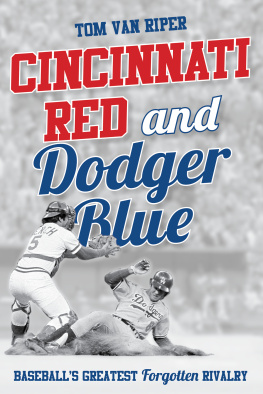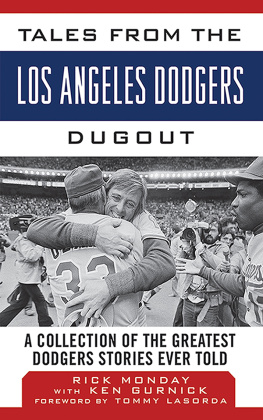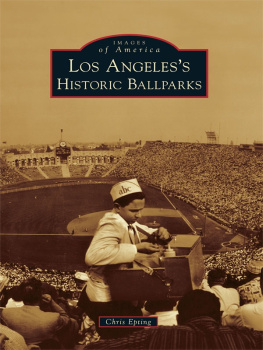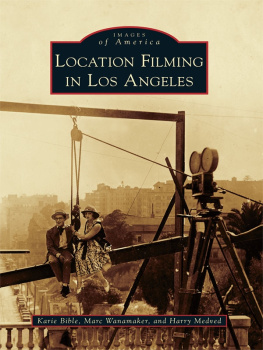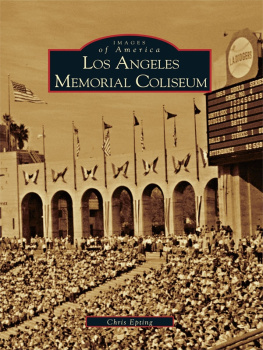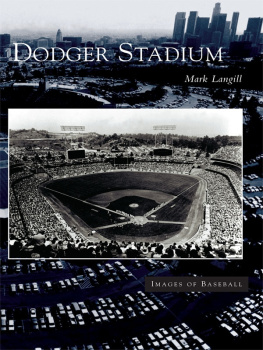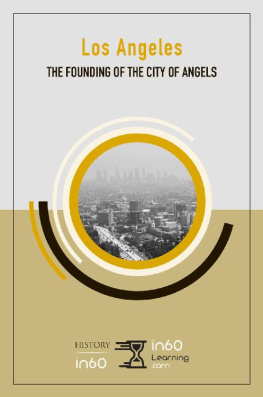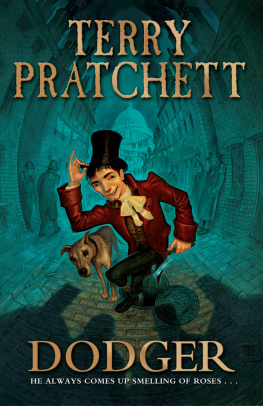Podair - City of dreams - dodger stadium and the birth of modern los angeles
Here you can read online Podair - City of dreams - dodger stadium and the birth of modern los angeles full text of the book (entire story) in english for free. Download pdf and epub, get meaning, cover and reviews about this ebook. year: 2017, publisher: Princeton University Press, genre: Politics. Description of the work, (preface) as well as reviews are available. Best literature library LitArk.com created for fans of good reading and offers a wide selection of genres:
Romance novel
Science fiction
Adventure
Detective
Science
History
Home and family
Prose
Art
Politics
Computer
Non-fiction
Religion
Business
Children
Humor
Choose a favorite category and find really read worthwhile books. Enjoy immersion in the world of imagination, feel the emotions of the characters or learn something new for yourself, make an fascinating discovery.

City of dreams - dodger stadium and the birth of modern los angeles: summary, description and annotation
We offer to read an annotation, description, summary or preface (depends on what the author of the book "City of dreams - dodger stadium and the birth of modern los angeles" wrote himself). If you haven't found the necessary information about the book — write in the comments, we will try to find it.
Podair: author's other books
Who wrote City of dreams - dodger stadium and the birth of modern los angeles? Find out the surname, the name of the author of the book and a list of all author's works by series.
City of dreams - dodger stadium and the birth of modern los angeles — read online for free the complete book (whole text) full work
Below is the text of the book, divided by pages. System saving the place of the last page read, allows you to conveniently read the book "City of dreams - dodger stadium and the birth of modern los angeles" online for free, without having to search again every time where you left off. Put a bookmark, and you can go to the page where you finished reading at any time.
Font size:
Interval:
Bookmark:
CITY OF DREAMS
DODGER STADIUM AND THE BIRTH OF MODERN LOS ANGELES
JERALD PODAIR
PRINCETON UNIVERSITY PRESS
PRINCETON AND OXFORD
Copyright 2017 by Princeton University Press
Published by Princeton University Press, 41 William Street, Princeton, New Jersey 08540
In the United Kingdom: Princeton University Press, 6 Oxford Street, Woodstock, Oxfordshire OX20 1TR
press.princeton.edu
Jacket design by Kathleen Lynch/Black Kat Design
Jacket image courtesy of iStock
All Rights Reserved
ISBN 978-0-691-12503-9
Library of Congress Control Number: 2016955221
British Library Cataloging-in-Publication Data is available
This book has been composed in Sabon LT Std
Printed on acid-free paper.
Printed in the United States of America
1 3 5 7 9 10 8 6 4 2
For Caren and Julie
CONTENTS
ACKNOWLEDGMENTS
This book owes its existence to one of the many wonderful conversations I had over the years with my late friend Bill Reel, one of New Yorks greatest journalists and chroniclers. What individual, he asked me, most affected the histories of Americas two most important cities? My answerWalter OMalleylaunched me on the road to writing this book. Along the way it became more of a Los Angeles story than a New York one, but I know Bill would understand.
In 1986, Robert Merring took me to Dodger Stadium and gave me my first look at Americas greatest ballpark. At the time, I had no idea that thirty years later I would be completing a book about it, but thanks just the same, Robert, for the introduction. I dont recall the score of the game, but I certainly remember the experience.
I am grateful, as always, for the support Lawrence University offers for my scholarship and writing. Thanks in large measure to Provost David Burrows, Lawrence is a model for liberal arts colleges in encouraging faculty research. The funding provided by my Robert S. French Chair in American Studies has made possible everything I have written during my time at Lawrence.
Also at Lawrence, I appreciate the help of the staff at the Seeley G. Mudd Library, especially research librarian Gretchen Revie, and that of my student research assistants over the years: Alyson Richey, Caitlin Gallogly, Hayley Vatch, Jennifer Sdunzik, Emily McLane, Sarah Golden, Michael Sze, and Emma Saiz. Lori Rose and Valerie Carlow of Lawrences Main Hall office personify efficiency, dedication, and good humor.
Thanks also to Jon Shelton, Jerry Seaman, Park and Katie Drescher, Paul Cohen, Tim Spurgin, Jake Frederick, Marty Finkler, Mary Meany, Vin Cannato, Max Lane, Dianne Mesa, Gary Gerstle, Robert Klein, Don Tobias, Jane Latour, Kevin Fogarty, and the late Richard Warch, Margot Warch, William Chaney, and Robert French.
James McPherson and Alan Brinkley continue to inspire me, both as historians and as human beings.
In Los Angeles, my time at UCLAs Charles E. Young Research Library was spent productively thanks to its responsive staff and student workers.
Also in Los Angeles, I owe an immense debt to Peter OMalley, Brent Shyer, and Robert Schweppe for their generosity as I worked on this project. Without the incredibly rich collection of materials related to Dodger Stadium and Walter OMalley that they opened to me, this book would not exist. They responded to my queries and inquiries with an attention to detail worthy of the nations best research libraries; no item was too small or trivial for their interest and assistance. They also offered a welcoming atmosphere in Los Angeles that made me greatly look forward to my visits to the city.
Thanks as well to those who consented to be interviewed for this book: Peter OMalley, Terry Seidler, Vin Scully, Rosalind Wyman, Fred Claire, Bob Smith, and Carol Jacques.
At Princeton University Press, it was a great joy to work with Brigitta van Rheinberg, who has made the press a place where ideas are valued and history has a true home. Thanks also to Quinn Fusting, Lyndsey Claro, and Amanda Peery for their knowledgeable professionalism.
My greatest debts of all are to my family, including my mother-in-law, Florence Benzer, and my late parents, Simon and Selma Podair. I hope my brother, Lee, will enjoy this book, even if it is not about his favorite baseball team. My daughter, Julie, and wife, Caren, sustain me in more ways than they can know. This book is for both of you.
PREFACE
OPENING DAY IN LOS ANGELES
On April 10, 1962, amid ceremony and celebration, Dodger Stadium, major league baseballs modern showpiece, opened in Los Angeles, California. It was a day of pride and accomplishment for Walter OMalley, the fifty-eight-year-old owner of the Los Angeles Dodgers, who had moved his team from Brooklyn, New York, in 1957 in order to build the ballpark of his dreams, one with every possible amenity and convenience. Now here it stood in the former Chavez Ravine neighborhood, a beautiful setting overlooking downtown Los Angeles to the south and the San Gabriel Mountains to the north.
The city of Los Angeles also had reason to be proud. It had attracted the Brooklyn Dodgers, a storied and successful baseball franchise, with the promise of the finest stadium in America. Here it was, adorned in vibrant earth-to-sky colors, with unobstructed field views and the biggest and most technologically advanced scoreboard in the game. It was already being called the wonder of the baseball world, a grand civic monument befitting a world-class city. OMalley, the Dodgers, and Los Angeles had done it.
But at what cost? Between 1957 and opening day 1962, Dodger Stadium divided Los Angeles in deep and profound ways. It raised the question of the citys modern identity. How would it best serve and govern its citizens? How would it present itself to the nation and world? Opponents of the stadium objected to what they viewed as a giveaway of public propertythe land at Chavez Ravine on which the stadium would be constructedfor the personal gain of a private individual. Supporters argued that the public benefits derived from the stadium in the form of property tax revenues, jobs, entertainment, and civic improvement justified OMalleys profits. They also envisioned Dodger Stadium as an important step in revitalizing Los Angeless lackluster downtown area and as one of the cultural amenities that marked the emergence of a sophisticated and modern city. Stadium critics rejected the idea that a great American city required a central core studded with civic monuments. They argued instead for a Los Angeles that performed the basic tasks of urban life, concentrating tax resources on neighborhoods in need of schools, streets, sanitation, and safety.
The disagreements over Dodger Stadium and these larger issues were fought out across the political and social landscape of Los Angeles between 1957 and 1962. There was a citywide referendum on the stadium project, a series of taxpayer lawsuits filed against the stadium contract, and a racially charged eviction of residents from the land on which the stadium was to be built. The battles took place in City Council chambers, at the ballot box, in newspapers and over the airwaves, in the courts, and sometimes in the streets. In the end, Dodger Stadium was built. But the arguments surrounding it did not end on that gala opening day. The questions it raised about the relationship between public and private power, the respective roles of urban core and periphery, and the modern identity of Los Angeles itself would remain long after April 10, 1962. Dodger Stadium was not the only venue on which the battle between differing visions of the city was contested. But as one of the very first such battlegrounds, it holds both tangible and symbolic importance. If the questions Dodger Stadium presented to the citizens of Los Angeles have not been answered definitively in the succeeding five decades of the citys historyand they have nothere is where they began. It is where an understanding of Los Angeles as a modern American city begins as well.
Next pageFont size:
Interval:
Bookmark:
Similar books «City of dreams - dodger stadium and the birth of modern los angeles»
Look at similar books to City of dreams - dodger stadium and the birth of modern los angeles. We have selected literature similar in name and meaning in the hope of providing readers with more options to find new, interesting, not yet read works.
Discussion, reviews of the book City of dreams - dodger stadium and the birth of modern los angeles and just readers' own opinions. Leave your comments, write what you think about the work, its meaning or the main characters. Specify what exactly you liked and what you didn't like, and why you think so.

